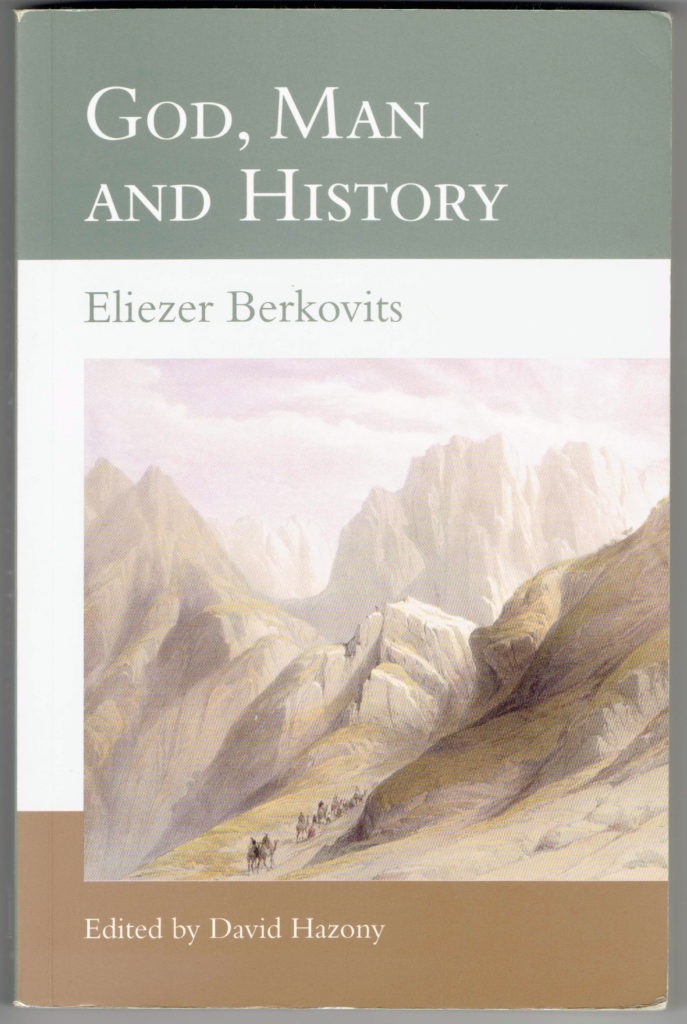God, Man and History
By Eliezer Berkovits
Shalem Press – (1959) 2004
____________________
A universe of perfection would be as ruthlessly determined by its nobility as the most rigorously mechanistic one is held in chain by the inexorable sequence of cause and effect.
Because he is God, nothing worth preserving is ever so lost in history as not to be found again – be it even beyond history.
 …the absolutely faultless is unfree. A perfect being in a perfect world would forever live and act in accordance with an inherent law, from which no deviation would be conceivable. A universe of perfection would be as ruthlessly determined by its nobility as the most rigorously mechanistic one is held in chain by the inexorable sequence of cause and effect. (82)
…the absolutely faultless is unfree. A perfect being in a perfect world would forever live and act in accordance with an inherent law, from which no deviation would be conceivable. A universe of perfection would be as ruthlessly determined by its nobility as the most rigorously mechanistic one is held in chain by the inexorable sequence of cause and effect. (82)
God never chose the Jews; rather, any people whom God chose was to become the Jewish people. The choice of God made Israel. (144)
Why ask for continuous miracles to rectify what goes wrong in the world? Would it not be simpler to ask for the creation of a perfect man, who would be so endowed by nature as to be incapable of committing any evil? The answer, of course, is even simpler than the question is naïve. A perfect man is, in this sense, a contradiction in terms; it is an impossibility. A man incapable of doing wrong would not be human. (148)
Because he is God, nothing worth preserving is ever so lost in history as not to be found again – be it even beyond history. (159)
Christianity has not discovered an idea of God which is superior to the one taught by Judaism; rather, it has adopted a radically pessimistic evaluation of human nature as compared with the critical optimism of Judaism concerning all creation. (180 – Notes)
The existence of God and the nature of his relationship to man and the world being given, the postulate of immortality follows of necessity. (191 – Notes)
